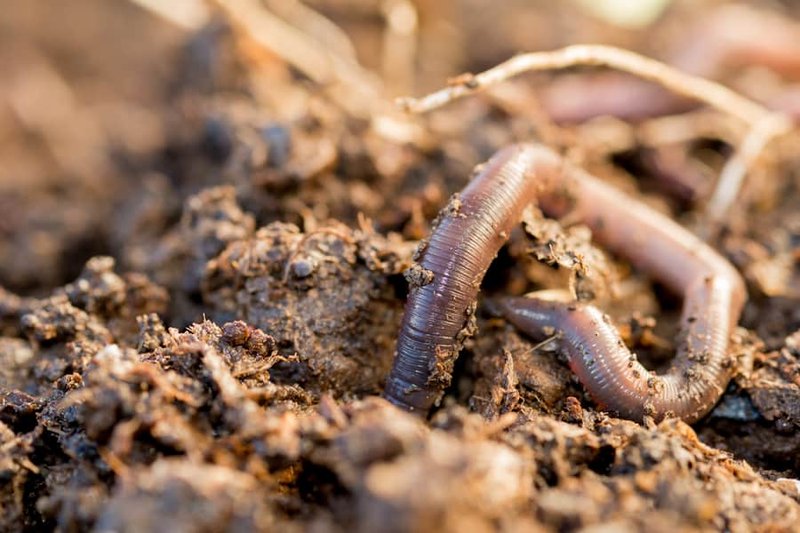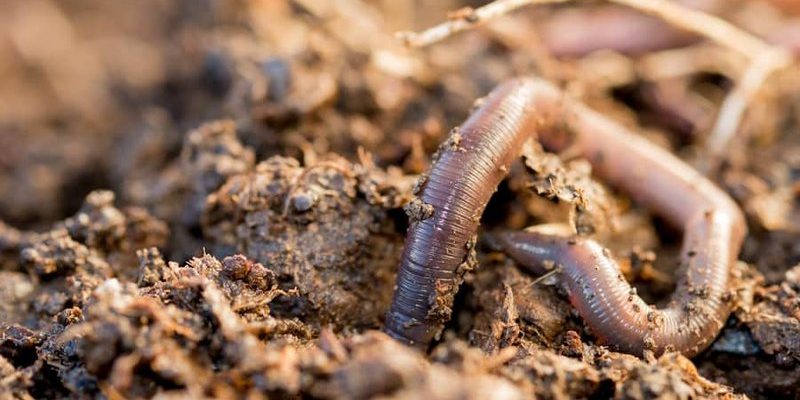
Earthworms are fascinating, and honestly, they deserve more attention than they often get. They’re like nature’s plump little recycling machines, breaking down organic matter and turning it into nutrient-rich soil. So, understanding how moisture affects them not only helps us appreciate these creatures more but also highlights their significance in our gardens and beyond.
Why Moisture Matters for Earthworms
Earthworms thrive in moist environments because they breathe through their skin. Yup, you heard that right! Their skin needs to be wet in order for oxygen to pass through it effectively. Just like we need clean air to breathe, earthworms need a moist habitat to stay alive. When the soil is dry, it can lead to a lack of oxygen, making it hard for them to survive.
Moist soil also helps in their movement. Earthworms need to wiggle through the ground to decompose organic matter and create tunnels for air and water to penetrate the earth. If the soil is too dry, it becomes hard and compacted, making it nearly impossible for them to navigate. Think of it as trying to run in sand; it’s tough!
Moreover, moisture plays a vital role in the digestion of food for earthworms. They consume organic material, and having enough moisture helps break down these materials efficiently. Without it, their digestive processes are hindered, which can ultimately lead to poor health or even death.
How Earthworms Contribute to Soil Health
Besides their need for moisture, earthworms contribute significantly to soil health. They’re nature’s little soil engineers! As they move through the soil, they create channels that allow water to drain properly, preventing puddles and promoting healthier root systems for plants. Their burrowing actions also aerate the soil, allowing for better root growth and enhancing the overall soil structure.
Earthworms play a crucial role in decomposing organic matter. When they consume decaying leaves and other plant materials, they break them down into humus—a valuable component of healthy soil. This humus enriches the soil with nutrients, making it more fertile for plants. The cycle continues, as plants thrive on this nutrient-rich soil, which in turn can support more earthworms. It’s a beautiful, interconnected loop of life.
Think about your garden. Healthy earthworm populations mean healthier plants and better yields. In fact, gardeners often take pride in the presence of earthworms in their soil, knowing that it indicates a flourishing ecosystem.
The Effects of Drought on Earthworms
Now, let’s talk about what happens when moisture levels drop, leading to drought conditions. Prolonged dry periods can be devastating for earthworms. Not only do they lose their homes, but they can also become stressed and vulnerable to predators. A lack of moisture can also lead to higher soil temperatures, making their environment almost unbearable.
When earthworms face drought, they get creative. They can burrow deeper into the ground, seeking moisture—but not all earthworms can do this successfully. If the upper layers dry out, they might not be able to find a suitable environment, leading to a decline in their population. This, in turn, has a ripple effect on soil health.
Without enough earthworms, the soil becomes less aerated and loses its nutrient content. You might notice that your plants struggle to grow, and the soil becomes less fertile. It’s a tough cycle that impacts not just the earthworms but the entire ecosystem.
Maintaining Moisture Levels in Your Garden
If you’re a gardener or just someone who loves plants, you might be wondering how to keep moisture levels optimal for earthworm survival. Here are a few tips:
- Mulch: Adding a layer of organic mulch can help retain soil moisture. It acts like a protective blanket, keeping water from evaporating too quickly.
- Water Wisely: Instead of light, frequent watering, aim for deeper, less frequent watering. This encourages earthworms to stay close to the surface where they can breathe.
- Plant Cover Crops: During dry spells or off-seasons, cover crops can help prevent soil erosion and maintain moisture levels.
- Compost: Incorporating compost into your soil not only enriches it but also helps retain moisture due to its organic content.
Implementing these practices can go a long way in promoting a healthy, moisture-rich environment for earthworms, which ultimately benefits your garden.
Moisture and Earthworm Species Variability
Did you know that different species of earthworms have varying moisture requirements? Some prefer cooler, moist environments, while others are more drought-tolerant. This can influence where they thrive, and if you’re planning to introduce earthworms to your garden, it’s good to know which species will fit best.
For instance, the common nightcrawler, often found in gardens, prefers moist, rich soils. On the other hand, some species can survive in drier conditions but might not provide the same soil benefits. Understanding the specific needs of different species can help you create a balanced ecosystem that maintains moisture levels and supports a thriving earthworm population.
If you’re thinking about starting a worm farm or enhancing your garden’s soil, consider the species you want to cultivate and their moisture preferences. Choosing the right kind can help you achieve the best results for your plants and soil health.
Moisture is more than just a nice-to-have for earthworms; it’s essential for their survival and the overall health of our ecosystems. These little creatures play a significant role in soil health, contributing to nutrient cycling and plant growth. When we prioritize moisture in the soil, we’re not just helping earthworms; we’re nurturing our plants and the environment.
If you’ve ever wondered how to improve your garden’s productivity or keep your plants thriving, consider the unseen heroes working hard beneath the surface. By understanding the importance of moisture for earthworm survival, you can take meaningful steps to ensure these valuable organisms thrive alongside your plants. After all, a healthy garden is a happy garden, and moisture is the lifeblood that keeps it all together.

